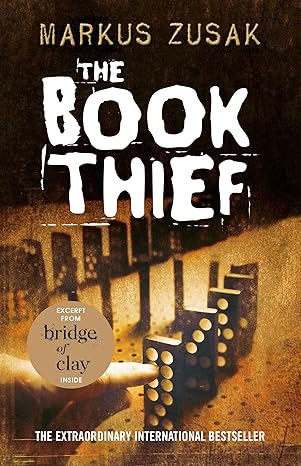
2024 Beyond SFF Writing Goals:
How to Ensure Success
Well, if you were looking for actual writing goals, see my other blog Charting the Unknown: SFF Writing Adventures and 2024 Ambitions. This article is about how to achieve said goals that you’ve already elected to pursue.
Some folks say to make your goals specific, measurable, achievable, relevant, and time-bound (SMART) to increase your chances of success at achieving them. Others say there might be certain personal or creative aspects of writing that are inherently challenging to quantify or fit into a rigid SMART framework.
I think both views are important to consider, and setting the right goals can be simply a matter of personal taste. Let’s discuss both types of goals.
Perhaps these two lists will give you some ideas of the different types of SMART vs abstract or subjective goals. Which may make more sense to you?
Word Count Goal.
Finish a novel Goal.
Revise and Edit Goals.
Submit your work Deadline Goal.
Vs more abstract or subjective goals
Be more creative.
Write with more specific emotional impact.
Network or build relationships with other writers.
Improve as a writer.
While the first group of goals can easily fall under the SMART framework (see the two examples below), there can be drawbacks. Some writers may feel creativity and inspiration will be lost as writers try to meet deadlines, becoming more fixed on tangible results overlooking the importance of the journey, learning experiences, and the joy of the creative process itself. You may set overly ambitious goals. And changes in circumstances, priorities, or creative directions with evolving insights and external factors, can trump the fixed nature of SMART goals.
Example 1 – Word Count Goal – “I will write a minimum of 300 words every day for the next three months to establish a consistent writing habit and make progress on my novel. I will track my daily word count using a writing app and review my overall progress at the end of each week.”
Example 2 – Finish a novel goal – “I will complete the first draft of my science fiction novel, XXXXX ,’ by writing a minimum of 10,000 words each month for the next six months. I will track my progress regularly, adjusting my writing schedule as needed to meet the monthly milestones. At the end of the six months, I aim to have a complete draft ready for the revision process.”
While the more abstract goals from the list above cannot be as quantifiable as SMART goals, they can be successfully achieved by following your personal satisfaction levels.
Example 1 – Be more creative – the writer needs to define what this means to them, actively work it into your writing, and don’t judge, just view results as 2024 results toward the goals mission.
- Is it about exploring new ideas, experimenting with different genres, or expressing your unique voice? Define creativity in a way that resonates with your personal writing style and goals.
- Pinpoint specific areas of your writing where you want to enhance creativity (e.g., character development, world-building, plot twists, or writing style).
- Actively cultivate and capture creative ideas regularly by scheduling a routine for Idea Generation through mind-mapping, journaling, or brainstorming.
- Practice Freewriting to dedicate time to writing without constraints or judgment.
- Diversify your reading to expose yourself to different writing styles, genres, and perspectives.
- Challenge yourself to write a short story in a genre you’ve never tried or experiment with a narrative structure you find intriguing.
Example 2 – Write with more specific emotional impact. Again, the writer needs to define what this means to them, actively work this into your writing, and don’t judge, just view results as 2024 results toward the goals mission. If I were to say this is defined by tapping into the emotions of your readers and creating a connection that resonates on a deeper level. I might view these areas of writing to focus on:
- Emotions of my characters – making their emotional experiences more vivid and authentic, allowing readers to empathize with their joys, sorrows, fears, and triumphs.
- I challenge myself to show emotions through actions, dialogue, and sensory details rather than simply telling readers what the characters are feeling.
- Explore a diverse range of emotions in my writing, including not only positive emotions like joy and love but also the complexities of negative emotions such as grief, anger, and despair.
- Experiment with descriptive and evocative language to convey the mood and atmosphere of scenes, making the emotional impact more palpable.
- Before: The waves crashed against the rocks.
- After: The relentless waves hurled themselves against the rugged cliffs, their thunderous roars echoing through the air like the battle cries of an ancient army locked in an eternal struggle.
- Master emotional beats in your storytelling by identifying key moments where emotions intensify or change, creating a dynamic emotional arc throughout your narrative.
- Craft scenes and characters that linger in the minds of your audience, prompting them to reflect on their own emotions and experiences.
- Make it a goal to actively seek feedback on the emotional impact of your writing.
- Read works known for their emotional impact:
- Never Let Me Go by Kazuo Ishiguro
- The Fault in Our Stars by John Green
- Dune by Frank Herbert
- The Book Thief by Markus Zusak
- The Left Hand of Darkness by Ursula K. Le Guin
Some non-SFF novels that do this are:
- To Kill a Mockingbird by Harper Lee
- The Kite Runner by Khaled Hosseini
- One Hundred Years of Solitude by Gabriel García Márquez
- A Thousand Splendid Suns by Khaled Hosseini
- The Color Purple by Alice Walker
- Experiment with the tone and mood of your writing to enhance emotional impact. Play with pacing, sentence structure, and narrative voice to create the desired emotional atmosphere.
In the final notes for this blog writing goals are only goals you have defined for yourself to achieve, whether SMART or abstract. How you achieve them is to regularly reflect on your progress and adjust your goals if needed. Analyze what is working well and what could be improved to enhance your overall writing experience. Be flexible and open to adjusting your goals based on evolving circumstances or insights. Celebrate your achievements, no matter how small. Find an accountability partner. And write. You cannot achieve a writing goal without writing.
Examples from famous authors:
(SMART)Agatha Christie, the queen of mystery, set a goal to write a certain number of books each year. Her dedication to her craft resulted in a vast body of work, including iconic detective novels like Murder on the Orient Express and Death on the Nile.
(SMART) Ernest Hemingway had a daily writing goal of around 500 words. He believed in the importance of consistency and not letting the momentum of the story wane. This disciplined approach contributed to his literary masterpieces like The Old Man and the Sea.
(Abstract) Ursula K. Le Guin’s Boundary-Pushing Exploration Goal. Craft speculative fiction that challenges societal norms and explores anthropological, philosophical, and ecological themes.
(Abstract)Anne McCaffrey’s Intimate Connection with Dragons Goal. Develop a deep emotional connection between readers and fantastical creatures, particularly dragons, in a way that transcends the boundaries of traditional fantasy.
(Abstract) Margaret Atwood’s Cautionary Speculation Goal. Use speculative fiction to issue cautionary tales about the consequences of societal and environmental choices, exploring dystopian futures that serve as warnings for the present.
(SMART) Frank Herbert’s Intricate Political Intrigue Goal. Craft a complex science fiction novel centered around political intrigue and power struggles within a futuristic society, aiming to finish the manuscript with a minimum word count of 150,000 words within the next twelve months.
What goals will you achieve in 2024?
I want to give a quick shout-out to PLOTTR software. I’ve found it has really improved my writing game and increased my efficiency tremendously. It is my new favorite writing aid. Use any of my affiliate links below and I might get a small commission. Thanks.
Check out my YouTube channel for PLOTTR videos @jlnichauthorsff
Joseph Michael’s Learn Scrivener Fast e-course
Please read and review my serial publishing novel, Sparrow’s Legacy, on Kindle Vella. You can read the first three chapters free on Amazon by searching for “Sparrows Legacy Kindle Vella” or clicking here. I. Please subscribe to my website if you want to be notified when I’ll be publishing or to get free samples of my work.
JL Nich, Science Fiction Fantasy Author



